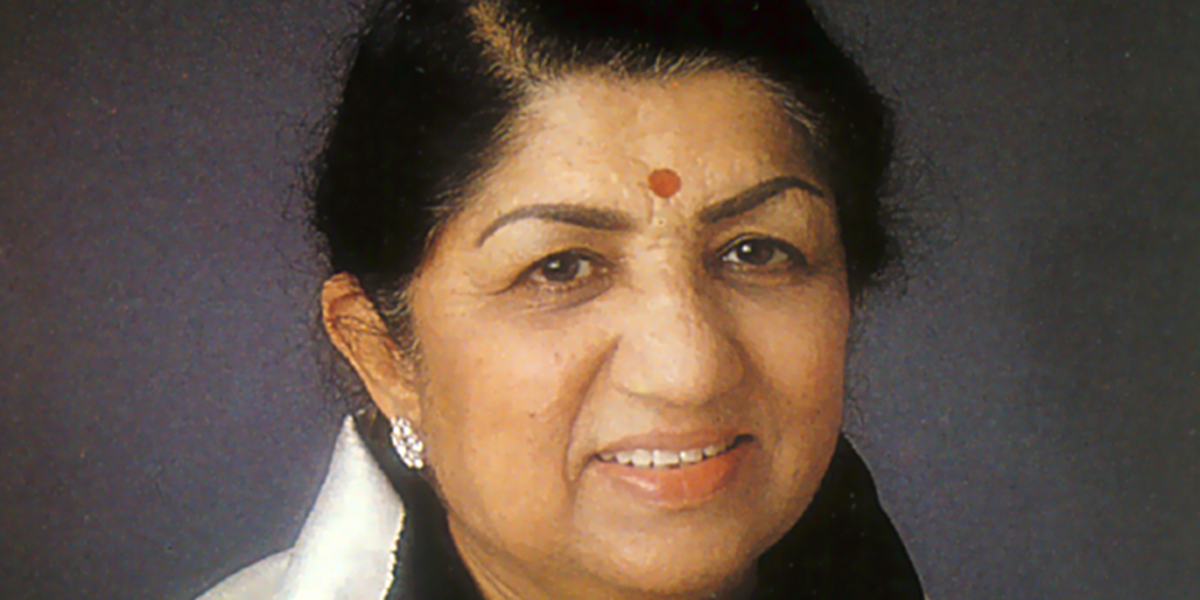Monday, February 7, 2022
Obituary: Lata Mangeshkar (1929-2022)
The 'nightingale of Bollywood' has died, aged 92

Lata Mangeshkar, without question the greatest singer of India’s independence era, died aged 92 on February 6 in Mumbai of complications from COVID-19. She rose to stardom as a playback singer, a vocalist who records songs for actors to lip-sync to on screen. From her debut in 1949 in the films Mahal and Barsaat, until her final film recordings in the mid-2000s, Mangeshkar recorded thousands of songs for more than one thousand films, and voiced every great actress of the Hindi and Marathi cinema over six decades. Beloved throughout the world as the ‘nightingale of India,’ and known to those in the industry with reverent affection as Didi (elder sister) it is Lata Mangeshkar’s voice we hear when we think of the sound of Bollywood – even if we don’t realise it.
She was born in Indore in 1929, the eldest of five children of the professional musician Pandit Deenanath Mangeshkar, who trained her in classical singing, as well as her sister, Asha Bhosle, who was the country’s other biggest Bollywood singer. He died when she was only 13, and this young girl with the mesmerisingly clear soprano voice became the family breadwinner, starting as a singing-actress in late-colonial Bombay films. In 1949, the radio broadcast of her standout song from the film Mahal, ‘Aayega Aane Wala’, led to the switchboard of All India Radio being inundated by callers wanting to know whose the miraculous voice was. From that point forward, Mangeshkar was forever in great demand, recording for all the major Bollywood music directors.
Her classical training made her voice extraordinarily flexible and versatile, but its high tessitura and light, clear, piercing timbre also made it ideally suited to voice the innocence of the film heroine. Adding to this sense of purity was Mangeshkar’s anti-star persona: she never married, always dressed in white, and looked down at her lyrics even when singing on stage to thousands. So powerful was her vocal embodiment of this ideal Indian femininity that later singers such as Alka Yagnik had to imitate her style in order to secure their place in the studio.
Mangeshkar was famous for her romantic vocal duets with the equally beloved Muhammad Rafi (d1980), but also for her hard-nosed business acumen, refusal to sing vulgar parts and her power to make or break films and music directors. It is completely impossible to choose the greatest songs of one so prolific, so consistently luminous over so many decades, but some of my favourite soundtracks include Barsaat (1949), Mother India (1957), Mughal-e-Azam (1960), Guide (1965), Pakeezah (1972), Dilwale Dulhania Le Jayenge (1995), Dil To Pagal Hai (1997), Zubeidaa (2000) and Veer-Zaara (2004).
Upon her death, two days of national mourning were declared. She was awarded a state funeral with full honours in Mumbai, attended by prime minster Narendra Modi, and a full panoply of India’s greatest film and music stars.
Oscar-winning film composer AR Rahman perhaps spoke for every Indian when he said, “it’s a very sad day for all of us. Lata Ji is not just a singer and not just an icon; I think part of her soul’s consciousness is India. This void is going to remain forever for all of us. Even though we have her songs, not having her is a grief, a void that will be very difficult to fill.”
One of the last great songs that Rahman wrote for her, ‘So Gaye Hain’, from the tragic love story Zubeidaa, perhaps expressed this best: ‘Silence is now soaked in grief / They have slept, they are lost, the romantic tales of my heart.’

